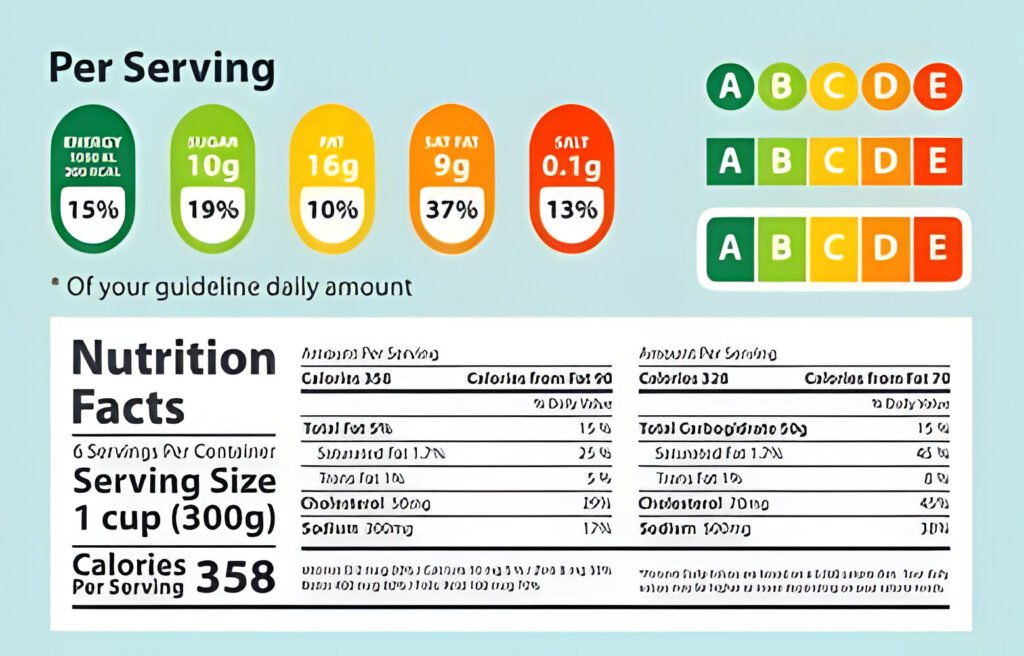
Sports nutrition is the study of nutrition and diet to improve athletic performance through various foods. It is essential for strength and endurance sports.
Proper nutrition and diet play a significant role in enhancing overall athletic performance. Due to higher physical activity levels, athletes need to consume nutritious foods to fulfil increased energy and water requirements. Additionally, consuming a meal two to four hours before an event provides the necessary fuel for muscles and the body.
This leads to improved energy levels, focus, muscle healing, decreased soreness, and a strengthened immune system. Understanding the significance of sports nutrition ensures optimal performance and supports various aspects of athletic endeavours, including proper hydration, nutrient intake, and supplementation.
Fueling For Performance
Proper nutrition is essential for peak sports performance. Athletes benefit from a well-balanced diet to maximize energy levels, aid muscle recovery, and enhance endurance. By focusing on fueling their bodies with the proper nutrients, athletes can optimize their performance and achieve their goals.
Pre-event Nutrition
Proper pre-event nutrition is essential for performing at your best during a sports event. A meal consumed two to four hours before the event can provide the necessary fuel to power your muscles and body. This pregame meal should include a balanced combination of carbohydrates, proteins, and fats to ensure sustained energy throughout the event.
Here are some critical tips for pre-event nutrition:
- Choose easily digestible foods that won’t weigh you down or cause discomfort
- Include complex carbohydrates for sustained energy
- Incorporate lean proteins to support muscle repair and growth
- Opt for healthy fats for long-lasting energy
- Stay hydrated by drinking plenty of water leading up to the event
Post-event Nutrition
Your body needs proper nutrition after a strenuous sports event to recover and replenish depleted energy stores. Post-event nutrition plays a crucial role in muscle repair, glycogen replenishment, and overall recovery. Prioritizing the proper nutrients can help reduce muscle soreness, promote muscle growth, and lay the foundation for optimal performance in future events.
Consider the following post-event nutrition guidelines:
- Consume a mix of carbohydrates and proteins within 30 minutes of completing the event
- Choose high-quality proteins to facilitate muscle repair and recovery
- Incorporate complex carbohydrates to replenish glycogen stores
- Include fruits and vegetables to provide essential vitamins and minerals
- Drink water or a sports drink to rehydrate
During-event Nutrition
Fueling your body during sports performance is equally important. Proper nutrition during the event can help maintain energy levels, prevent fatigue, and enhance endurance. Choosing easily digestible foods that provide a quick energy source without causing digestive discomfort is crucial. Additionally, staying hydrated is essential to avoid dehydration and performance decline.
Follow these tips for during-event nutrition:
- Consume small, frequent meals or snacks to provide a steady supply of energy
- Choose easily digestible carbohydrates like energy gels, fruits, or sports drinks
- Consider incorporating electrolyte-rich foods or beverages to maintain electrolyte balance
- Stay hydrated by drinking water or a sports drink throughout the event
- Listen to your body’s cues and adjust your nutrition strategy accordingly
Paying attention to your nutrition before, during, and after a sports event can maximize your performance potential and support your body’s recovery process. Fueling your body with the proper nutrients at the right time can significantly affect your athletic performance.
Credit: www.houseofwellness.com.au
Key Nutrients For Athletes
Sports nutrition is crucial for athletes to optimize their performance and aid recovery. Essential nutrients fuel an athlete’s body, promote muscle growth and repair, and maintain overall health. Understanding the significance of each nutrient is vital to crafting a well-balanced diet that meets an athlete’s nutritional needs. Let’s delve into the essential nutrients that are fundamental for athletes:
Protein
Protein is a fundamental macronutrient for athletes as it aids muscle repair and growth. Foods rich in protein, such as lean meats, poultry, fish, eggs, dairy products, and plant-based sources like beans and legumes, are essential for athletes to consume regularly. To support their training and recovery, it is recommended that athletes consume approximately 1.2 to 2.0 grams of protein per kilogram of body weight per day.
Carbohydrates
Carbohydrates are the primary source of energy for athletes. Complex carbohydrates in whole grains, fruits, and vegetables provide sustained energy levels essential for athletic performance. Carbohydrates play a crucial role in replenishing muscle glycogen stores, thus improving endurance and preventing fatigue. Athletes should prioritize consuming sufficient carbohydrates to fuel their workouts and aid in recovery.
Fats
Fats are another significant macronutrient that is a concentrated energy source for endurance athletes. Healthy fats, such as those found in nuts, seeds, avocados, and fatty fish, contribute to overall health and have anti-inflammatory properties, which are beneficial for athletes undergoing intense training. Athletes need to include a variety of healthy fats in their diet to support optimal performance and recovery.
Hydration
Proper hydration is crucial for athletic performance and recovery. Athletes should maintain adequate fluid intake before, during, and after exercise to prevent dehydration, maintain electrolyte balance, and support optimal physical function. Dehydration can significantly impact an athlete’s performance and overall well-being, making it essential to prioritize consistent and adequate hydration practices.
Nutrition Strategies For Young Athletes
Sports nutrition plays a crucial role in enhancing the performance of young athletes. Adopting the right nutrition strategies is essential for their growth, energy levels, and overall well-being.
Protein Choices
- Select lean protein sources like chicken, fish, tofu, and legumes to support muscle growth and repair.
- Diversify protein intake with eggs, dairy products, and nuts for a balanced diet.
Fluid Intake
Hydration is critical for young athletes to maintain performance and prevent dehydration. Encourage regular water consumption throughout the day and during exercise.
Snacks And Meals
Offer nutrient-dense snacks and meals to fuel young athletes before, during, and after training sessions. Focus on a combination of carbohydrates, proteins, and healthy fats for sustained energy.

Credit: www.amazon.com
Sports Nutrition Resources
Sports Nutrition Resources:
American College Of Sports Medicine
The American College of Sports Medicine (ACSM) provides valuable resources and guidelines for athletes to optimize their nutrition for peak performance.
Athlete Insight
Athlete Insight is a platform that debunks common sports nutrition myths and offers insightful information for athletes looking to enhance their dietary strategies.
National Fellow Online Lecture Series
The National Fellow Online Lecture Series is a comprehensive resource covering various topics such as carbohydrate intake, hydration, protein benefits, and more to educate athletes on maximizing their nutritional intake for improved performance.
Credit: deal.town
Frequently Asked Questions For Sports Nutrition Facts
What Are 4 Facts About Sports Nutrition?
Sports nutrition is the study and practice of improving athletic performance through nutrition. It is vital for strength and endurance sports, and its benefits include muscle recovery, increased energy levels, and improved focus. Proper nutrition is essential for optimal sports performance.
What Are 5 Benefits Of Sports Nutrition?
Sports nutrition provides several benefits for athletes and active individuals: 1. Enhanced athletic performance. 2. Improved muscle recovery and reduced fatigue. 3. Strengthened immune system. 4. Increased energy levels and focus. 5. Optimal nutritional support for training and competition.
What Is The Correct Nutrition For Sports?
Sports nutrition is essential for enhancing athletic performance by providing the proper foods, nutrients, hydration, and supplements needed for success in sports.
What Is The Sports Nutrition?
Sports nutrition is the study and practice of improving athletic performance through diet and nutrition. It focuses on proper foods, nutrients, hydration, and supplements to support athletic performance.
Conclusion
Sports nutrition is crucial in optimizing athletic performance and promoting overall well-being. By understanding the impact of nutrition on the body, athletes can make informed dietary choices to enhance energy levels, combat fatigue, and aid muscle recovery. Incorporating the right balance of nutrients and hydration can significantly improve sports performance.

I am a blogger for holistic wellness & longevity. With a passion for nutrition, fitness, & mindfulness, I’m dedicated to sharing insights on healthy living. Join my journey towards a vibrant life with practical tips & evidence-based advice. Embrace vitality and thrive with me!

